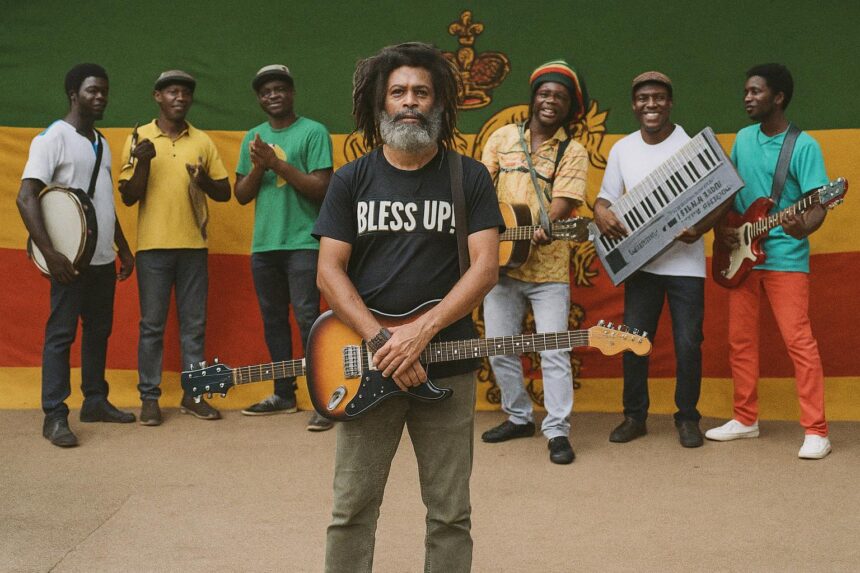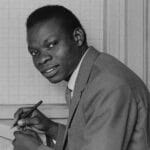Mouyondzi Anticipates a Rhythmic Homecoming
On 1 August the usually tranquil market town of Mouyondzi will resonate with off-beat guitar chops and deep bass lines as Conquering Lions, a pillar of Congo-Brazzaville’s reggae scene, returns to the Bouenza hinterland. Local administrators describe the event as a symbolic “homecoming” for a group whose members hail from the southern districts yet rarely perform outside Brazzaville or Pointe-Noire (Les Dépêches de Brazzaville, 2023). Logistical preparations, coordinated by the departmental cultural bureau, include the installation of a mobile stage on the old mission football pitch, ensuring broad access for residents of surrounding villages.
Scheduled just four days before the Republic’s 65th Independence anniversary, the concert is framed as a prelude to nationwide festivities. Organisers emphasise that the theme, “Retour aux sources, Congo’s Tour”, seeks to rekindle communal pride while encouraging safe, family-friendly gatherings. According to local radio station Radio Bouenza, more than 5 000 attendees are expected, a substantial figure for a locality whose census places its urban population below 20 000.
Reggae as Soft Power and Cultural Diplomacy
Since the 1970s reggae has travelled well beyond its Jamaican birthplace, morphing into a vehicle for political commentary and cultural diplomacy across Africa. Conquering Lions aligns itself with that lineage, blending Lingala, Kikongo and French lyrics in what front-man Patrick Bikoumou calls “a diplomatic handshake through sound” (interview with Télé Congo, May 2024). The Ministry of Culture, which granted logistical support, regards such concerts as informal extensions of the nation’s public-diplomacy portfolio, projecting an image of inclusivity and artistic vitality.
Regional observers note that Brazzaville’s ‘reggae Bantou’ offers a distinctive narrative: rather than protest alone, its tonal focus has shifted toward social cohesion, environmental stewardship and pan-African solidarity. Musicologist Mireille Mabiala argues that this tonal recalibration mirrors the government’s post-Covid cultural strategy, which emphasises unity over confrontation (Université Marien-Ngouabi Cultural Review, 2024).
A Set List Crafted for Collective Memory
Conquering Lions intends to deliver a two-hour repertoire anchored in crowd favourites such as “Nkouka Toleka” and “Zikissa Spirit”, supplemented by the freshly recorded single “Bouéta Mbongo”. The latter, produced in collaboration with Kinshasa-based studio Nzela, weaves traditional tam-tam patterns into a contemporary reggae groove, illustrating the ensemble’s commitment to sonic hybridity.
Performance dynamics are equally calibrated. Bikoumou’s trademark call-and-response with the audience serves as more than entertainment: it is a participatory ritual reinforcing shared memory. Ethnographer Jean-Luc Moukassa underscores that such interactive devices have historically forged strong communal bonds during national holidays (African Arts Quarterly, 2022), suggesting the Mouyondzi concert may embed itself in the town’s collective narrative.
Youth Engagement ahead of Independence Day
Demographically, Bouenza is youthful; nearly 60 % of its inhabitants are under 25, according to the National Institute of Statistics. By offering a free, open-air show, organisers seek to harness this demographic dividend, providing an alternative forum for expression that dovetails with state programmes combating social marginalisation. The local chapter of the Conseil National de la Jeunesse is deploying volunteers to facilitate crowd management and to disseminate information about vocational-training schemes during interludes.
Observers from UNICEF-Congo welcome the timing, noting that cultural events can be catalysts for civic engagement when scheduled near landmark dates. The symbolism of a reggae anthem extolling resilience—sung on the eve of Independence festivities—could resonate deeply with first-time voters expected at polls in forthcoming municipal elections.
Governmental Support and the Cultural Economy
Beyond symbolism, the concert illustrates how cultural industries are gradually integrating into Congo’s diversification agenda under the National Development Plan 2022-2026. The Ministry of Culture’s small-grant facility financed part of the sound engineering, while the Bouenza prefecture waived venue fees to encourage turnout. According to the Congolese Association of Performing-Arts Professionals, similar initiatives in 2023 generated a 12 % uptick in local hospitality revenues during event weeks.
Tourism consultants based in Oyo suggest that positioning Mouyondzi as a periodic cultural hub could stimulate rural entrepreneurship, from artisanal food stalls to eco-lodge projects near the Louessé River. Such prospects align with broader government objectives to reduce the economic asymmetry between urban centres and interior departments.
Echoes Beyond the Bouenza Plateau
While reggae is often associated with protest, in Congo-Brazzaville it has evolved into a conduit for consensus-building. Should Conquering Lions’ performance meet expectations, officials hint at extending the ‘Congo’s Tour’ to Ouesso and Dolisie later in the year, effectively crafting a musical arc that mirrors the nation’s North-South road corridor.
For Patrick Bikoumou and his fellow musicians, the forthcoming night in Mouyondzi is less a detour than a reaffirmation of roots. For policy planners, it is a live demonstration of how culture can advance unity, economic micro-growth and a dignified image of the Republic on the eve of its 65th year of sovereignty. As the final chords fade into the Bouenza night sky, the resonance of reggae Bantou is expected to linger—audible proof that soft power can indeed travel on a bassline.




















